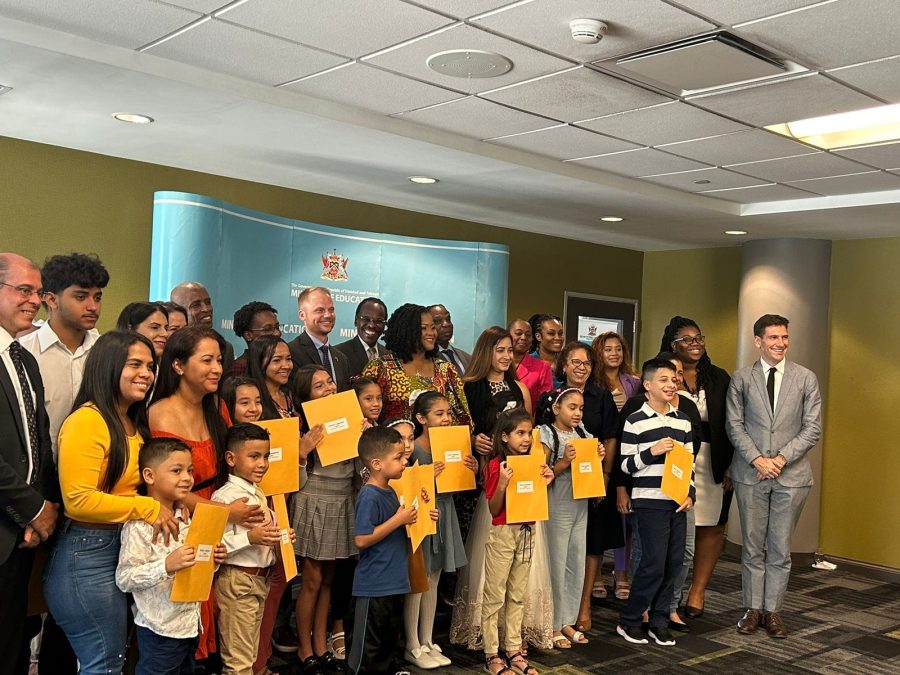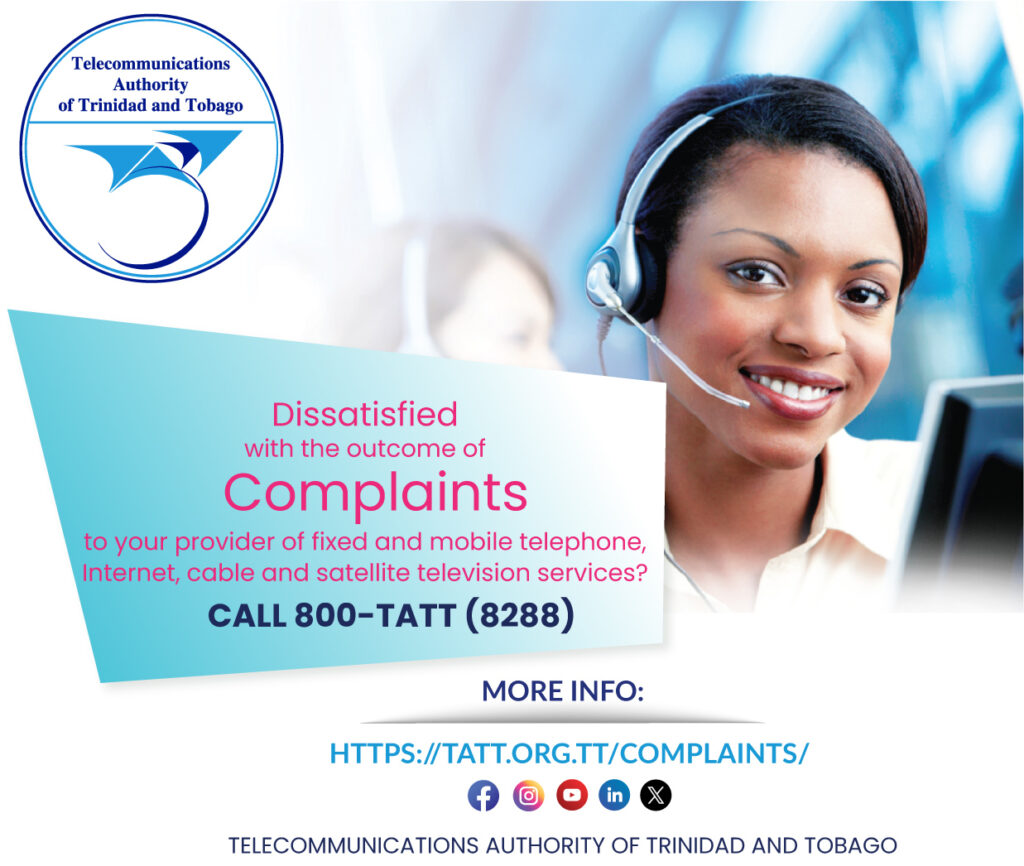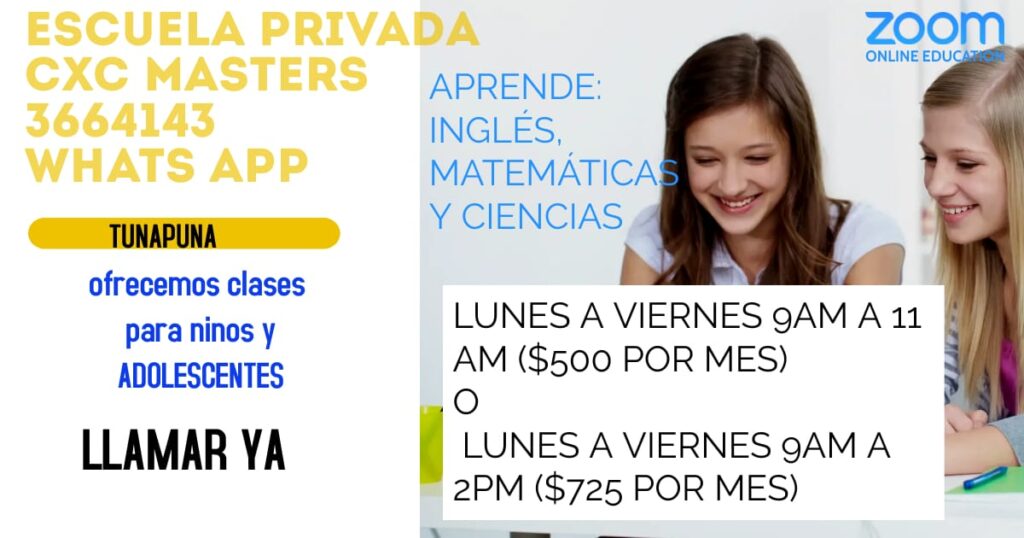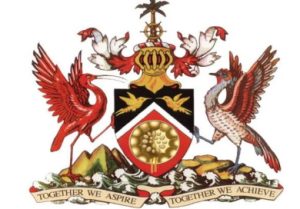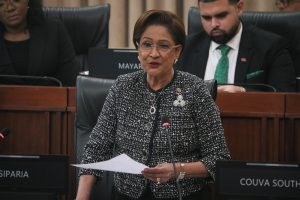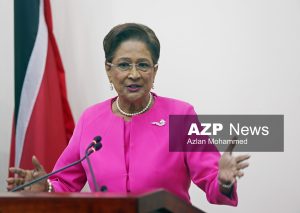Caption: Venezuelan migrant children with their certificates to attend school. Photo: Ministry of Education
TWENTY-three migrant children in Trinidad and Tobago will attend school when the term begins in September.
During a ceremony on Monday, these children received their Student Permit Exemption Certificates from the Minister of Education, paving the way for their educational journey.
The Ministry of Education has highlighted that this initiative aligns with the Immigration (Amendment) (No.2) Regulations 2024. The regulations specifically cater to Venezuelan nationals under 18 years old, whose parents registered with the Ministry of National Security (MNS) in 2019 and have continued to register annually under the Migrant Registration Framework (MRF).
In a press conference following the ceremony at her ministry’s head office in Port of Spain, Minister of Education Dr Nyan Gadsby-Dolly addressed concerns about the need for additional resources at the schools these children will attend. She assured the public that measures will be implemented if necessary.
She said, “Every school may have one or two, maximum three students, so we need to first understand what is the impact of them in the school and if it is something that cannot be handled by the current staff at the school.”
Gadsby-Dolly said, “And if those are the learnings that we are seeing, then it will inform what we do in response to that.”
Currently, the minister does not foresee an immediate need for additional resources. However, she said that the ministry was ready to take action if any issues arise, and noted that teachers have undergone training to better support these new students.
She said, “So that will continue to happen, and if we have an issue we will take action to support the school even more.”
National Security Minister Fitzgerald Hinds who was also at the ceremony said that about 2,000 migrant children have been registered with the government and stressed that unregistered migrants would not be considered to be in schools at this time.
The children will be placed in four government and 18 denominational schools.
Chief Education Officer Dr Peter Smith revealed a number of problems.
He said, “There were a few challenges that we did encounter. For instance, missing documents, expired permits, low levels of literacy among parents, resulting in extended periods of times for interviews.”
Smith said there were also difficulties in organising translators at the district level where registration took place.
![]()


